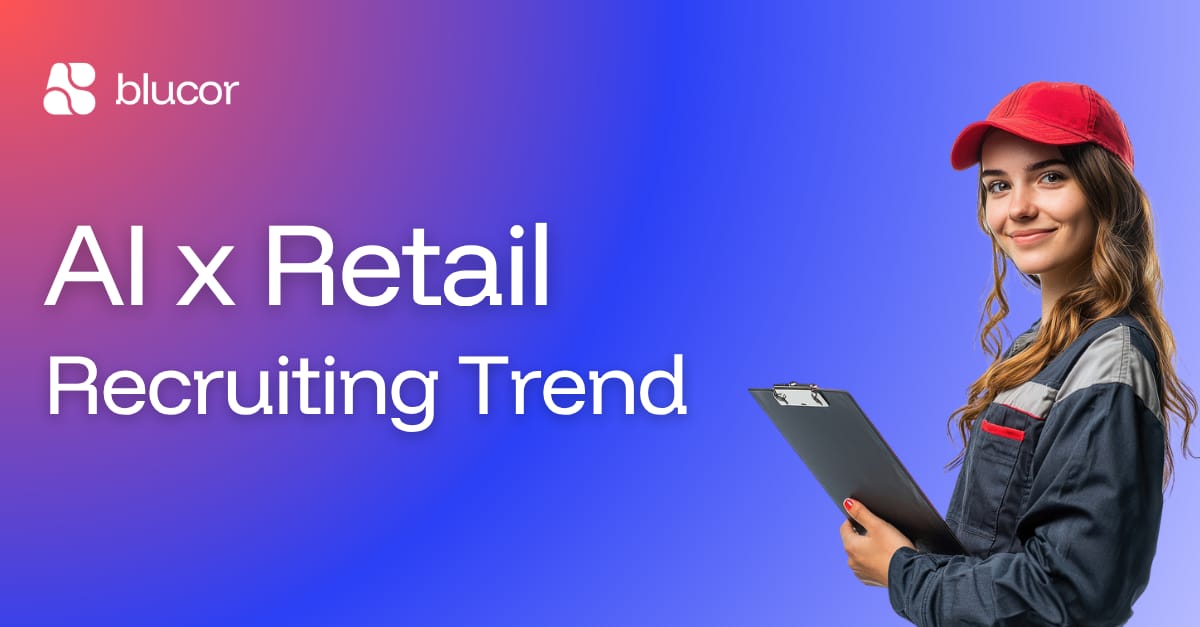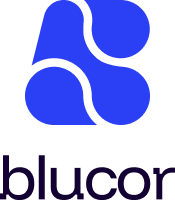- Blucor's Newsletter
- Posts
- How AI Recruiting Is Transforming Retail Hiring in 2025
How AI Recruiting Is Transforming Retail Hiring in 2025

Retail hiring has always been a balancing act between speed and quality. Seasonal surges, high turnover, and constant demand for customer service roles make it one of the most complex hiring environments. AI recruiting tools are changing that reality, helping retailers fill roles faster, cut costs, and deliver a better candidate experience.
TL;DR: This post explains how AI recruiting is reshaping retail hiring, which retailers are leading adoption, and the trends defining the next phase of workforce automation.

The Retail Labor Crunch
Retail turnover rates hover around 60% annually, according to the U.S. Bureau of Labor Statistics. During peak seasons, that number spikes even higher. Recruiters face thousands of applications for store-level and logistics roles, often with limited time to screen and schedule interviews.
AI recruiting systems now handle much of that workload. They automate resume review, phone screening, and scheduling, allowing HR teams to focus on candidate engagement instead of repetitive tasks.
Real-World Adoption: Walmart, Unilever, and Macy’s
Major retailers are already proving the value of AI recruiting.
Walmart uses AI-driven chatbots to pre-screen candidates and schedule interviews for hourly roles. The company reported that its AI recruiting tools helped cut time-to-hire from weeks to days, especially during seasonal surges (source: Forbes, 2023).
Unilever adopted AI video interviews and game-based assessments to evaluate entry-level applicants. The company reduced hiring time by 75% and improved candidate satisfaction scores by 80% (source: Harvard Business Review, 2022).
Macy’s implemented AI-powered scheduling and candidate matching to manage its seasonal workforce. The system helped the retailer process thousands of applications in hours, improving both speed and quality of hire (source: Retail Dive, 2024).
These examples show how automation can keep retail hiring fast, fair, and consistent across every store location.
Key Benefits for Retail Talent Acquisition
AI recruiting tools deliver measurable results for retail HR teams:
Speed: Screen thousands of applicants in hours instead of days.
Cost Efficiency: Reduce recruiter workload and overtime costs by more than half.
Scalability: Handle seasonal spikes without adding headcount.
Multilingual Support: Engage diverse candidate pools across regions.
Consistency: Apply the same evaluation criteria across every store and role.
Candidates benefit too. They can complete interviews by phone or chatbot in their preferred language, any time of day. Recruiters receive ranked shortlists ready for review, freeing them to focus on people, not paperwork.
Emerging Trends Shaping Retail Hiring
AI recruiting is evolving beyond screening. Three trends stand out in 2025:
Mobile-First Hiring: Most retail candidates apply by phone. AI tools now optimize every step, from application to onboarding, for mobile use.
Predictive Analytics: Retailers use data from past hires to forecast turnover and staffing needs, helping them plan ahead for peak seasons.
Digital Onboarding: Once hired, candidates complete paperwork and training through automated workflows, cutting start times from weeks to days.
Together, these trends make hiring more agile and data-driven, giving retailers a competitive edge in a tight labor market.
The Bottom Line
AI recruiting has moved from experiment to expectation in retail. It helps teams stay operational during demand spikes and deliver a better candidate experience at scale.
Retailers that invest now will enter the next hiring season ready to move faster, hire smarter, and keep stores fully staffed.
Sources:
Forbes (2023), “How Walmart Uses AI to Speed Up Hourly Hiring”
Harvard Business Review (2022), “How Unilever Uses AI to Hire Better and Faster”
Retail Dive (2024), “Macy’s Turns to AI to Manage Seasonal Hiring Surge”